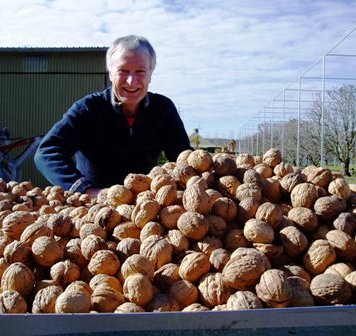
Andrew Whittaker: piling them high
Finals, figures and fighting junk
Amid concerns over rising drowning statistics, Andrew Whittaker explores the end-of-season angst in the oval ball codes and wonders whether the recession has impacted on physical activity in Australia.

Andrew Whittaker: piling them high
My correspondence has been held off until you got over winning the Ashes, although the one-day series provided some relief for Australia. It will be interesting to see how the Champions Trophy pans out in South Africa with England playing well and South Africa already out. Interest here is muted as there is too much cricket with little purpose, just a lot of games to satisfy television requirements in each country. Cricket is one game that seriously needs to look at its future as there is a growing credibility gap between local community/village/district cricket and the professional ‘no purpose’ game designed for TV. It begs the question whether high-profile elite sport actually increases or affects participation at a local level or is just entertainment.
It is the end of the winter season and we are in the middle of 'finals fever' for rugby league and AFL. As you may be aware, the champion team for each sport is not the team that finishes top of the table at the end of the season. They are only called the ‘minor premiers’. At season’s end the top eight teams play off in another series called ‘the finals’ and the winner of that elimination series at the grand final is the champion. Geelong have just won the AFL, although they came second to St Kilda. The NRL (rugby league) grand final will be played between Melbourne Storm (4th) and Parramatta Eels (8th). It is really a separate competition after the normal season has finished and it generates massive publicity and interest.
However, looking back over the season some of the biggest publicity has been related to the shocking behaviour of the footballers in both codes, particularly rugby league. Assaults, drunken behaviour and allegations of sexual misconduct have featured throughout the season in the tabloid media and the football codes have got their spin doctors working overtime. It raises the question whether we are expecting too much from some of these players; perhaps they are not there to be positive role models for the game but to be professional athletes only. Also does their negative behaviour have any influence or impact on whether people participate in the sport at a recreational level? Some clubs do an excellent job, with their players heavily involved in community events, school visits and speaking engagements, building up their supporter base and promoting their game. Yet some of the key participation activities in the general population (walking, going to the gym, recreational swimming) are not related to professional sport. So why do we have role model expectations from professional sports people?
The 2009 drowning statistics have been released and after many years of declining figures, last year (2008/09) had a big increase of 16% to 302 drownings. Australia has very comprehensive water safety programmes and learn-to-swim classes are an essential component of a child’s education. The key areas were an increase in drowning in the under-5 and over-55 groups. These figures will cause some concern among the water safety and life saving organisations as the beach culture and aquatic activities are an integral part of the Australian lifestyle. Aquatic recreation in all its forms (surfing, sailing, swimming, fishing, boating, etc) would probably be the most popular participation activities across the country.
Another interesting set of figures relates to the fact that participation in fitness and health programmes has held up well despite the financial crisis. People have not dropped their gym/health club memberships as was forecast so this is a good indication that certain parts of the community have integrated the ‘be active’ message into their weekly lifestyle. In contradiction of this, there are continuing statistics showing increases in obesity and poor diet. I wonder who is going to win, the fitness industry or the junk food boys?
Andrew Whittaker has recently retired as chief executive of Aquatics and Recreation Victoria and is still active in the Australian sport and leisure sector.
The Leisure Review, October 2009
© Copyright of all material on this site is retained by The Leisure Review or the individual contributors where stated. Contact The Leisure Review for details.
Download a pdf version of this article for printing